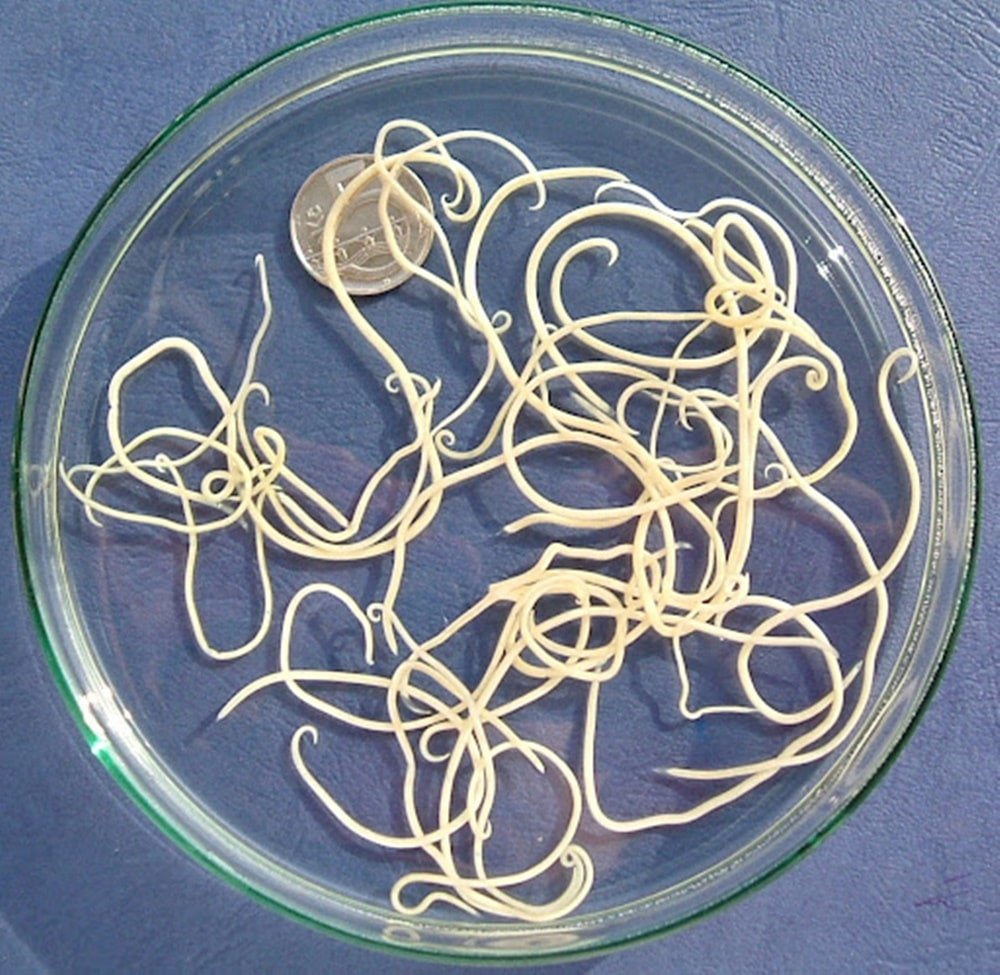
Intestinal worms or parasitic worms are primitive living organisms that feed off the human body.
Many people are familiar with the common types of worms, such as tapeworms and hookworms.
However, they may be less aware of the other types.
Intestinal worms can cause many symptoms in the body, some of which are similar to the symptoms of gut disorders.
Although stomach worms may seem alarming, most people respond well to treatment.
In this article, we’ll learn more about different worm types and the symptoms they may cause.
We’ll also explain how people get intestinal worms and what the treatment involves.
Types of intestinal worms
Various types of worms can affect people.
Let’s take a closer look at some of them.
Tapeworm
A tapeworm is; a type of flatworm that lives in the intestine and attaches itself to the intestinal wall.
It tends to be long, usually between 3 meters to 10 meters, depending on the type of worm.
There are different types of tapeworm; some live in water while others live in meats, such as beef or pork.
Ingesting unclean or raw meats may expose the person to tapeworms.
Hookworm
A hookworm usually enters the human body through unsanitary soil.
Hookworms lay eggs, which pass out of the body through feces.
When the eggs hatch, larvae can enter through another person’s skin.
People are at risk if they come in contact with feces or soil containing contaminated feces used as a fertilizer.
Flukes
Flukes have a rounded-leaf shape.
Humans get flukes by accidentally ingesting them, either in drinking water or in freshwater plants, such as watercress.
Once they enter the body, they settle in the bile ducts and the liver.
Some people do not have any symptoms, but others may experience symptoms months or even years after initially ingesting the parasite.
These people may experience inflammation of bile ducts or even complete blockage.
They may also have abnormal liver test results.
Pinworm
A pinworm is a tiny, thin worm.
It is relatively harmless and sometimes lives in the colon and rectum in humans.
Ascaris
Ascaris is more like a hookworm, although it is only a few inches long.
It lives in unsanitary soil, so it only enters the body when people ingest the egg.
It lives in the intestine, and people infected with ascariasis mostly show few or no symptoms.
Severe infection may cause intestinal blockage or impair growth in children.
Trichinella
Trichinella is another type of roundworm that passes to humans who eat undercooked or raw meat that contain live larvae.
It grows in the intestines.
Trichinella may leave the intestines and live in other tissues, such as muscles, at puberty.

Treating intestinal worms
The patient needs to test a stool sample in the laboratory to check if it contains worm eggs.
The doctor will also prescribe a medication to get rid of it in case the person is infected.
Treatment duration will be 1 to 3 days, and the patient’s family members will need treatment also.
The patient should also wash his hands after using the toilet and before preparing or eating food during the day to avoid recurring infections.
Intestinal worms in children
Threadworms are the most common type of intestinal worms in children, also known as pinworms.
They cause no harm to children and are easily treated.
In addition, they spread among people very easily.
Children become infected with threadworms when they are accidentally exposed to worm eggs then swallow them.
Infection may occur when they come in contact with infected people or through contaminated dust, toys, or bed sheets.
Worms reach children’s intestines and lay eggs around the anus, causing itching in their bottoms.
Sometimes, worms enter girls’ vaginas, causing itching as well.
If children touch their mouths after scratching their bottoms, they can swallow the eggs again; which leads to the repetition of this cycle.
Symptoms of intestinal worms in children
Usually, infected children do not complain of any symptoms, but in rare cases, the following symptoms occur;
- Itching around the anus and the vagina usually intensifies at night.
- Skin rash around the bottom.
- Insomnia
Some of the rare symptoms include;
- Stomach pain.
- Vaginitis.
- Vomiting and nausea.
Types of house worms
There are hundreds and thousands of worm species that live in different hosts other than soil.
The main groups are divided into different types of worms as follows:
Platyhelminthes
This group includes tapeworms, flatworms, and flukes.
Nematodes
This group includes roundworms, threadworms, and hookworms.
Annelida
Worms included in this group, such as bristle worms and earthworms.
Finally, intestinal worm infections are; quite common, and they must be treated promptly to avoid serious complications.